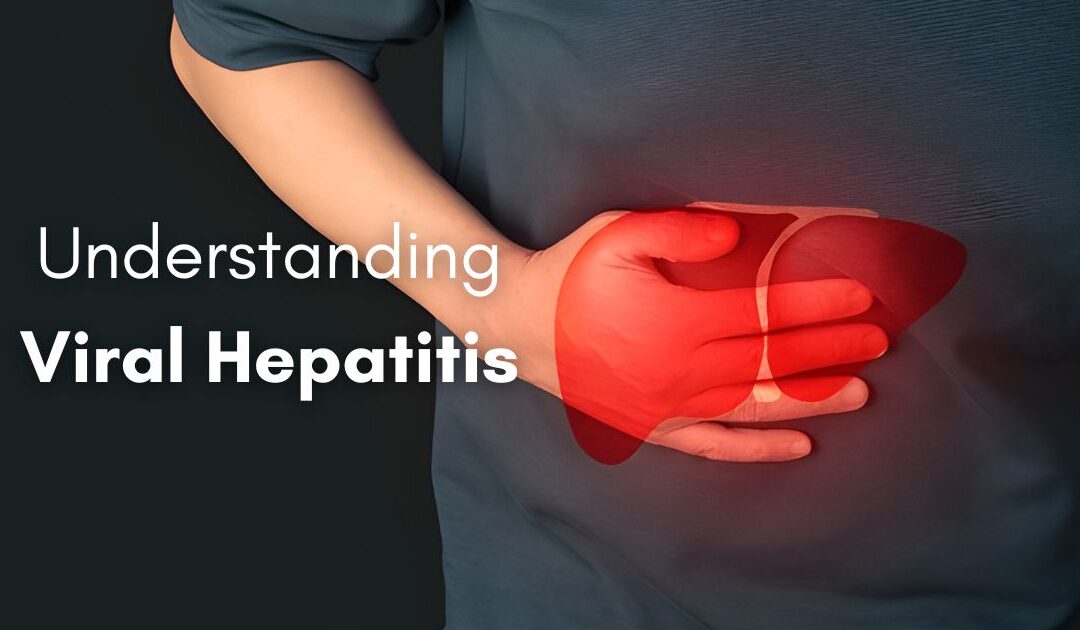Hepatitis is essentially liver swelling or inflammation of the liver in reaction to a kind of irritation or injury, and it can be painful. While there are many causes of hepatitis, “6000 people are newly infected with viral hepatitis each day” according to the World Health Organization. There are two types of viral hepatitis: acute, which lasts less than six months, and chronic, which lasts more than six months. Hepatitis viruses can transfer from person to person. Sexual contact can spread some viral hepatitis strains. Avoiding risky behaviors including sharing needles, having unprotected sex, and consuming significant amounts of alcohol may reduce your risk of contracting hepatitis.
Different Types of Hepatitis:
There are 5 types of hepatitis viruses known, categorized as Hepatitis A, Hepatitis B, Hepatitis C, Hepatitis D, and Hepatitis E.
- Hepatitis A
The most common ways to contract hepatitis A are through contaminated water or food or by coming into close contact with an infected person or object. Treatment for mild cases of hepatitis A is not necessary. The majority of infected individuals fully recover and experience no long-term liver impairment.
- Hepatitis B
Hepatitis B can be transmitted by body fluids such as blood or semen. Coughing and sneezing do not transfer the virus. Hepatitis B is acute or doesn’t last longer than six months, for a large number of individuals. Acute infections can be controlled with rest, lots of fluids, and infection monitoring; they may not require medical attention. However, if hepatitis B persists for longer than six months, it may become chronic for some individuals. A chronic infection can remain untreated until severe liver disease symptoms present.
- Hepatitis C
Hepatitis C results in inflammation or swelling of the liver. Liver damage from hepatitis C can be quite severe. The hepatitis C virus (HCV) can be transmitted by coming into contact with the infected person’s blood. Most patients with a continuous hepatitis C infection, often known as a chronic infection, respond well to therapy with more recent antiviral medications. These drugs usually treat chronic hepatitis C.
- Hepatitis D
Only those with a history of hepatitis B infection can develop hepatitis D. You will be immune to the hepatitis D virus if you have had the hepatitis B vaccination.
- Hepatitis E
Eating or drinking of contaminated water or food can transmit this particular strain of hepatitis. Globally, hepatitis E is a prevalent infection. Vaccines do exist, but they are not accessible everywhere.
Medical professionals may fail to recognize the virus that causes hepatitis as one from the above list. Aside from HSV, EBV, and CMV, other viruses can also cause hepatitis.
Hepatitis A & E- What are they & their Symptoms?
Hepatitis A accounts for 20% to 25% of hepatitis cases in developed countries, and is usually transmitted through:
- The fecal-oral route
- If an infected person neglected to thoroughly wash their hands after using their bathroom.
- Eating shellfish that has been collected from polluted water.
The infected person is contagious for two to six weeks during incubation. is another way to contract hepatitis A. Hepatitis A outbreaks are common in developing nations and are brought on by ingesting water polluted with raw sewage. Patients with hepatitis A have a great prognosis, a self-limiting course, and full recovery. The majority of hepatitis A patients (around 85%) recover in three months, and nearly all do so in six.
Similar to hepatitis A, hepatitis E is more common in Asia and Africa and is also known as enteric hepatitis (enteric meaning related to the intestines). It can also spread via the fecal-oral pathway. Although it is more serious in pregnant women and can lead to fetal challenges, it is usually not fatal. The majority of hepatitis E patients fully recover.
Symptoms of Hepatitis A & E:
- Fever
- Joint pain
- Rash
- Swelling
- Fatigue
- Muscle pain
- Nausea and vomiting
- Abdominal pain
- Dark urine
- Jaundice
- Irritated skin lesions
How Can You Protect Yourself Against Hepatitis?
There are several ways in which you can protect yourself from Hepatitis:
- Get vaccinated for hepatitis A and B strains
- Use protection during coitus
- Avoid sharing needles
- Practice good personal hygiene
- Avoid using an infected person’s items
- Take precautions when traveling to poorly sanitized areas
- Drink bottled water when traveling.
If you engage in risky behaviors, you must take these precautions. Also take preventive measures if you work in environments where you have prolonged contact with people and a chance of contracting the disease, such as restaurants, nursing homes, dorms, or daycare centers.
In case you have recently traveled to a hepatitis-prone country, or unknowingly indulged in unhygienic practices, and you think you might have the symptoms indicative of hepatitis, or even a little yellowing of your eyes accompanied by fever, book a consultation with a physician at the earliest, and get a professional diagnosis urgently.




